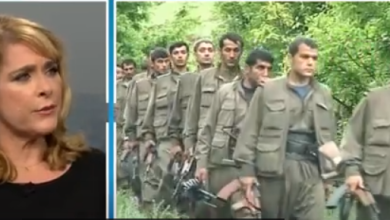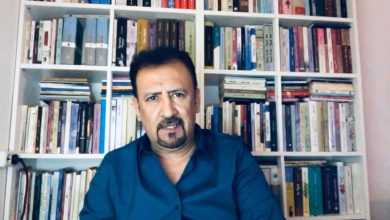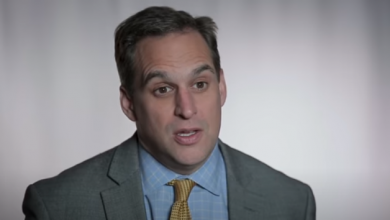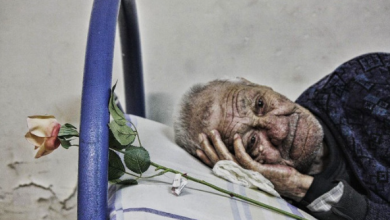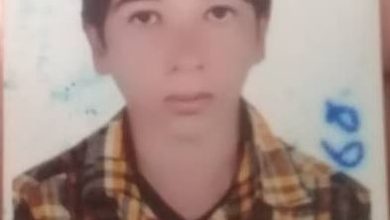“My childhood was spent in a hardworking, large family. My father was a simple laborer, and my mother was a homemaker.” – Ali Rashidzadeh
According to the Iranian Kurdistan Human Rights Watch in Ilam, poverty and financial difficulties can be significant factors in attracting young people to armed and extremist groups. In many cases, unfavorable economic conditions and a lack of suitable job opportunities lead young individuals to seek illegal sources of income or join armed groups. These groups often offer promises of income, security, and a sense of belonging. In addition to poverty, other factors such as social discontent, limited access to education and social services, and cultural and political influences can also play a role. Therefore, addressing this phenomenon requires comprehensive and multifaceted approaches that not only improve economic conditions but also address social and cultural issues.
In today’s world, young people face numerous challenges that can significantly alter their life paths. These challenges, particularly in disadvantaged communities, can include economic poverty, lack of job opportunities, and a sense of identity crisis. In such circumstances, some young individuals seek ways to escape their problems and find a new identity. The life story of Ali Rashidzadeh begins at this point. He, who spent his childhood in a hardworking and large family, was driven by financial and social pressures to make decisions that completely changed his life. This narrative is a story of despair and the search for identity in a world full of challenges, which led Mr. Rashidzadeh to a group that presented him with attractive but false promises.
Question: What factors led you to join the PAK group? Were you aware of the nature of such armed groups? How familiar were you with warfare and weapons?
Ali Rashidzadeh: “My childhood was spent in a hardworking, large family. My father was a simple laborer, and my mother was a homemaker. We were always financially strained, and these pressures forced me to enter the workforce very early. After completing my second year of high school, I had to drop out and start working as a laborer. Despite my best efforts, my income was insufficient to support my family. I want to emphasize that poverty can play a significant role in the membership of people like me in armed groups, including paramilitary groups. The lack of job and economic opportunities was evident in my life and the lives of my friends. The hope of changing my economic and social situation and that of my community drove me towards armed groups. A sense of despair and helplessness overwhelmed me. During this time, I became acquainted with images of the PAK group through social media. The images and videos showed neat military uniforms, organized camps, and promises of Kurdish freedom. For me, tired of my living conditions, these images seemed appealing. Gradually, the idea of joining this group took shape in my mind. Some of my fellow citizens who had previously joined the group spoke of life in the camps as an opportunity to find a new identity and have security and income. Influenced by these conversations and the images I saw, I decided to join the PAK group. In fact, financial promises or job security were influential in my membership. I was not familiar with PAK and its ideology beforehand.”
Question: Were you aware of the conditions and obligations when you joined the group?
Ali Rashidzadeh: “To be honest, no. I had no precise information. Young people like me who join these groups do not have accurate information about the realities of life in these groups because PAK, like many armed groups, uses attractive and deceptive propaganda that portrays life in these groups as a form of heroism or a struggle for greater causes. Before joining, I had only heard that I could receive training and perhaps find a job. When I arrived, I was immediately sent to a training course. The courses were very tough and exhausting. These courses included various theoretical and practical training, including working with various weapons such as Kalashnikovs, BKC machine guns, handguns, RPGs, and grenades. Additionally, we had to undergo political training on the Kurdistan Freedom Party’s manifesto. The physical and mental pressures were intense from the beginning, and some members were unable to continue. But there was no turning back. In effect, they were imprisoned.”
Question: Did you consider escaping?
Ali Rashidzadeh: “Yes, from the first weeks. When I saw how different the situation was from my expectations, I thought about escaping. I once managed to leave the camp and went to the first welfare center in Erbil to surrender. But unfortunately, they returned me to the group. After returning, I was severely beaten and held in the group’s detention center for two months. The severity of the injuries was such that I developed an infection, and no treatment was provided. Those were the hardest days of my life. Later, I learned that escaping from the group is considered treason, and individuals may face torture or severe punishments. These punishments can include beatings, imprisonment, and even execution.”
Question: Did you find a better situation during your stay in the camp?
Ali Rashidzadeh: “No, there was no improvement. Even after being released from the detention center, I still had to stay in the camp and undergo harsher training. The psychological pressures from the punishments and the harsh behavior of the commanders continued. Life in an armed group like PAK, especially for me who was young and had a failed escape attempt, is usually accompanied by a lot of psychological pressure. Members may be under strict surveillance, and any sign of discontent or rebellion may result in severe punishment. There was no rest or comfort space for members in PAK, and we were constantly engaged in military exercises or political training. With each passing day, I felt more trapped, especially when I saw that many others, like me, were caught in these conditions without political motivation and simply hoping for a better life.”
Question: How were you able to escape again?
Ali Rashidzadeh: “After the Iranian missile and drone attack on the group’s headquarters, the situation became chaotic, and many people were injured. In this chaos, I seized the opportunity and took refuge in the mountains. I wandered in the mountains for several days without food or water until I reached the Patriotic Union of Kurdistan in Sulaymaniyah and surrendered. From there, I pursued the procedures for returning to Iran.”
Question: What happened after you returned to Iran?
Ali Rashidzadeh: “On June 5, 2023, I went to the Iranian consulate in Sulaymaniyah and introduced myself. Fortunately, I was treated humanely. After some questions and investigations, I was allowed to return to Iran. Now I live in Ilam and am trying to return to a normal life. Although the bitter memories of that period still linger in my mind, I hope to achieve a better life through work and effort.”
Question: Do you regret your decision to join the PAK group?
Ali Rashidzadeh: “Absolutely. It was a big mistake. I was just looking for a way to escape my problems, but I got caught in a situation that not only did not solve my problems but made them worse. I hope no one else takes this wrong path.”


